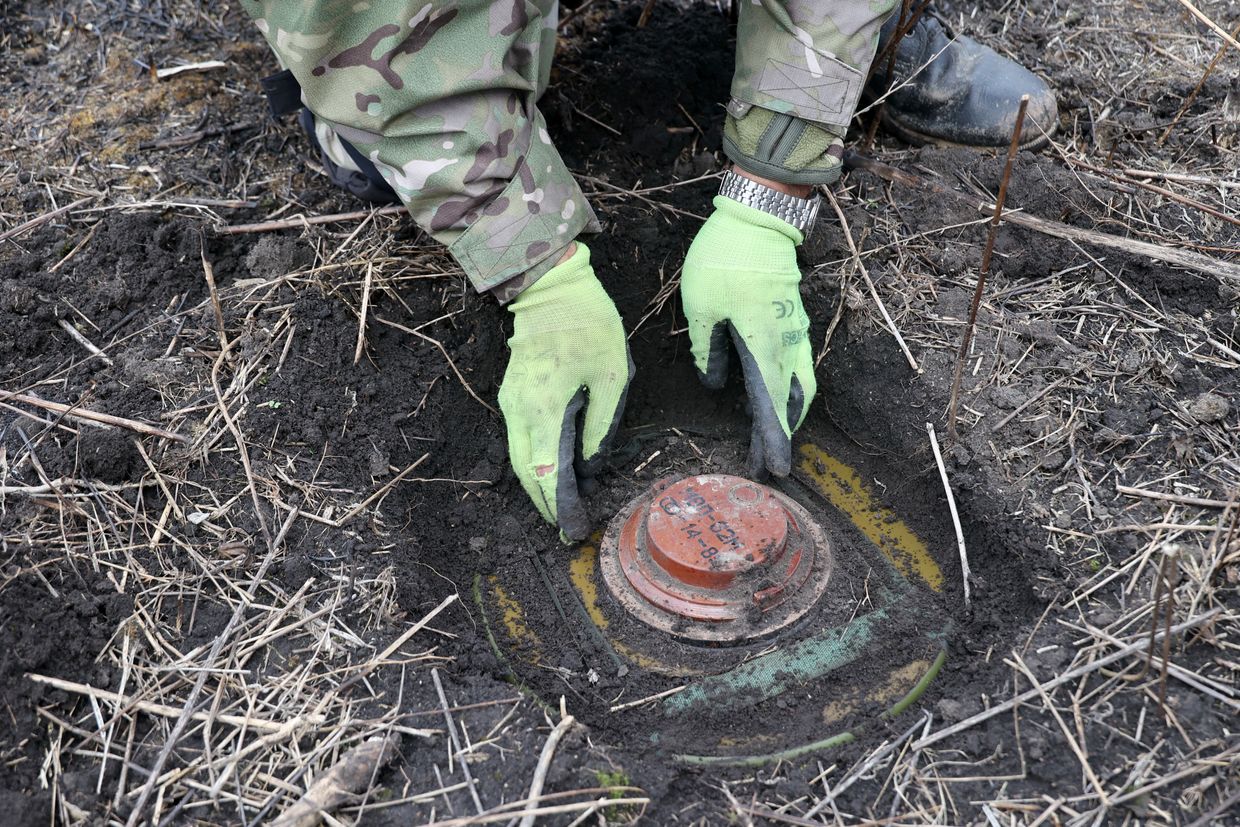"I have great hope that an agreement for a ceasefire in Ukraine will be reached this weekend," German Chancellor Friedrich Merz said on May 9, shortly before traveling to Kyiv alongside the leaders of France, Poland, and the U.K.
U.K. Prime Minister Keir Starmer, French President Emmanuel Macron, German Chancellor Friedrich Merz, and Polish Prime Minister Donald Tusk will arrive in Kyiv early on May 10.
The United States embassy in Kyiv on May 9 issued a warning that Russia could launch "a potentially significant" attack in the coming days, despite Putin's self-declared Victory Day "truce."
The sanctioned oil tankers have transported over $24 billion in cargo since 2024, according to Downing Street. The U.K. has now sanctioned more shadow fleet vessels than any other country.
The sanctions list includes 58 individuals and 74 companies, with 67 Russian enterprises related to military technology.
Washington and its partners are considering additional sanctions if the parties do not observe a ceasefire, with political and technical negotiations between Europe and the U.S. intensifying since last week, Reuters' source said.
Despite the Kremlin's announcement of a May 8–11 truce, heavy fighting continued in multiple regions throughout the front line.
Putin has done in Russia everything that Luiz Inacio Lula da Silva had been against in Brazil.
The Kyiv Independent’s contributor Ignatius Ivlev-Yorke spent a day with a mobile team from the State Emergency Service in Nikopol in the south of Ukraine as they responded to relentless drone, artillery, and mortar strikes from Russian forces just across the Dnipro River. Nikopol is located across from the Russian-occupied Zaporizhzhia Nuclear Power Plant in the city of Enerhodar.
Ukraine has neutralized over 533,000 explosive devices since February, 2022

Pyrotechnic teams from Ukraine's State Emergency Service have detected and disposed of over 533,200 pieces of explosive ordnance since Russia's full-scale invasion began on February 24, 2022.
The teams have cleared around 148,858 hectares of territory, including 4,018 aerial bombs, according to a report published on Oct. 4.
Over the past 24 hours alone, the units of the State Emergency Service responded to 173 calls, removing and disposing of 293 explosives, including two air bombs, while surveying an additional 127,630 hectares.
The regions most frequently requiring pyrotechnic deployment include Kharkiv (35,815 times), Kherson (16,560 times), Donetsk (14,826 times), Kyiv (11,393 times), Mykolaiv (9,360 times), Chernihiv (6,948 times), and Sumy (4,425 times).
Authorities urge the public to report any suspicious objects by calling 101.
Ukraine also remains the world’s most mined country. The country's Defense Ministry specialists have cleared 30,000 square kilometers of mines over the past two years - an area comparable to the size of Belgium or Moldova.
Since 2022, approximately 174,000 square kilometers of Ukrainian land have been contaminated with explosives, making 144,000 square kilometers still potentially dangerous.

Most Popular

After 3 years of full-scale war in Ukraine, Europe announces plan to ban all Russian gas imports

Ukraine, Europe's ceasefire proposal includes US security guarantees, no recognition of Crimea, Reuters reports

Journalist Roshchyna's body missing organs after Russian captivity, investigation says

After Russia's deadly attack on Kyiv, Vance reposts denunciation of Zelensky

Ukrainian sea drone downs Russian fighter jet in 'world-first' strike, intelligence says
Editors' Picks

How medics of Ukraine’s 3rd Assault Brigade deal with horrors of drone warfare

As Russia trains abducted children for war, Ukraine fights uphill battle to bring them home

'I just hate the Russians' — Kyiv district recovers from drone strike as ceasefire remains elusive



